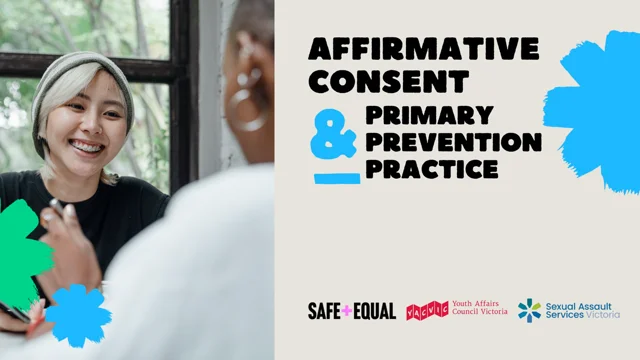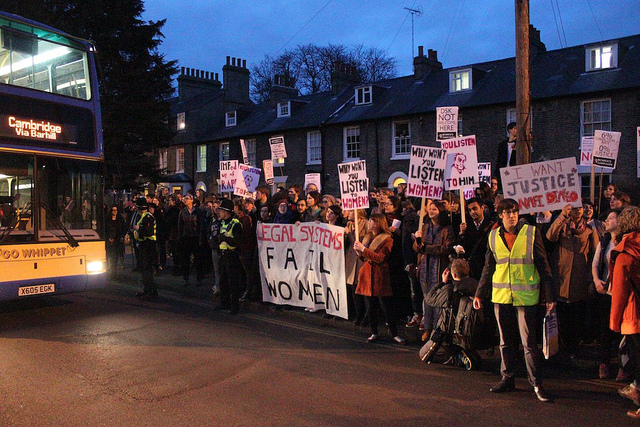[CN: Sexual assault etc.]
Last week I posted about what a paradigm of affirmative consent would look like. A lot of the post was general, not talking about specific legislation. And yet, the whole media frenzy was around some of the new affirmative consent laws in college campuses in the US. So let’s look at one of the actual pieces of legislation at the centre of the media discussions. A good candidate would be the California affirmative consent bill SB-967. I’ll quote it item by item with my commentary (skipping the background text and stopping where they get to specific program elements and funding).

It is of course important to note that there may be a huge difference in my interpretation of the text with how it will actually be used. Still, I think we can glean quite a lot from the text.
(a) In order to receive state funds for student financial assistance, the governing board of each community college district, the Trustees of the California State University, the Regents of the University of California, and the governing boards of independent postsecondary institutions shall adopt a policy concerning sexual assault, domestic violence, dating violence, and stalking, as defined in the federal Higher Education Act of 1965 (20 U.S.C. Sec. 1092(f)) involving a student, both on and off campus. The policy shall include all of the following:
The first important thing about this law is that it does not pertain to sexual assault criminal trials but to disciplinary hearings in college campuses. This is a distinction that appears to have been erased in many anti-affirmative consent law discussions. Now, this law could well provide a good starting point for a criminal framework but of course some things might need to be altered.
(1) An affirmative consent standard in the determination of whether consent was given by both parties to sexual activity.
At this point, this is saying that college hearings must try to determine if all parties actually gave affirmative consent (by using it as a standard) and not the “he/she didn’t say no” standard. So if you oppose this, I can’t imagine any other interpretation other than you wanting “they didn’t say no” to be accepted as a successful defence to keep a perpetrator from being expelled. For example, someone who rapes a sleeping person.
“Affirmative consent” means affirmative, conscious, and voluntary agreement to engage in sexual activity.
A few things to unpack here. ‘Conscious’ is of course important to explicitly prevent the “but they were passed out” defence. There’s always talk about how affirmative consent would make the most ordinary sex between long-standing partners a crime. If a clause like this is used to prosecute (for example) partners who have a long-standing agreement that sexual activity is fine if one person is asleep, then there might be something to talk about. Even then, I’m not a sexologist but I doubt this is a common arrangement. And for couples with such an arrangement there is still a strong case that this still goes against consent because it assumes that a person give some blanket consent to an indeterminate future number of sexual encounters. ‘Voluntary’ is I imagine there because a lot of rape involves coercion more subtle than the threat of violence. This is still rape under affirmative consent, which is accurate. (Wait, you mean we have to interpret social norms in a trial and “judge” things on a “case-by-case” basis?) One thing that’s missing is ‘enthusiastic’. While this is something that many/most would aim for, it’s important not to shame people who cannot be/are not enthusiastic about the actual act but still want to perform it for their partner. More here.
It is the responsibility of each person involved in the sexual activity to ensure that he or she has the affirmative consent of the other or others to engage in the sexual activity.
This clearly states that all participants have a positive legal obligation. Therefore it would not be enough to claim that you didn’t know or that you misunderstood. Again, there is no escaping the fact that some cases may turn on what is considered a reasonable amount of “investigation”. Which may even – SHOCK HORROR – change along with social attitudes.
Lack of protest or resistance does not mean consent, nor does silence mean consent.
This naturally comes out of the definition of affirmative consent but it’s good to spell it out, again that it’s not the absence of a no.
Affirmative consent must be ongoing throughout a sexual activity and can be revoked at any time.
Not having something like this would be horrible because it reopens the floodgates of the “but they said yes to XYZ” defence. However, it has been the subject of so much pushback that I think it deserves a post of its own, which I’ll do after this one. Spoiler alert: once yes does not mean always yes and concerns about hypothetical victims of the law are pretty dubious.
The existence of a dating relationship between the persons involved, or the fact of past sexual relations between them, should never by itself be assumed to be an indicator of consent.
OMFSM, people in relationships need to be considerate of their partners to make sure they are not raping them! Again, going against this is essentially assuming that the people involved want to go out of their way to punish defendants of rape in refusing to interpret normal indications of consent inside relationships as meeting the requirements for affirmative consent. In other words, the opposite of what’s happening (the legal system is not keen to punish alleged rapists at any cost).
(2) A policy that, in the evaluation of complaints in any disciplinary process, it shall not be a valid excuse to alleged lack of affirmative consent that the accused believed that the complainant consented to the sexual activity under either of the following circumstances:
(A) The accused’s belief in affirmative consent arose from the intoxication or recklessness of the accused.
(B) The accused did not take reasonable steps, in the circumstances known to the accused at the time, to ascertain whether the complainant affirmatively consented.
This outlines more about the fact that people having a sex have an obligation to determine to a reasonable extent that affirmative consent has been obtained. And so, getting drunk does not get someone off the hook for establishing consent and you don’t just get to say “I wasn’t aware they objected”. Meaning the mens rea part is not as essential. Now of course in a criminal law situation, if the prosecution could show that the defendant deliberately ignored a no, that would potentially justify a much harsher punishment.
(3) A policy that the standard used in determining whether the elements of the complaint against the accused have been demonstrated is the preponderance of the evidence.
Yes, this is not the same level of standard as a criminal trial has (or should have). If this is a problem, that’s saying that civil institutions should be required to use a “reasonable doubt” defence in their internal workings. What about workplaces: should workplaces not be able to sack an employee if evidence of assault/rape/fraud/embezzlement has been uncovered that meets “preponderance of the evidence” but not “reasonable doubt”? I doubt forcing such workplaces to keep those people is going to do much good.
(4) A policy that, in the evaluation of complaints in the disciplinary process, it shall not be a valid excuse that the accused believed that the complainant affirmatively consented to the sexual activity if the accused knew or reasonably should have known that the complainant was unable to consent to the sexual activity under any of the following circumstances:
(A) The complainant was asleep or unconscious.
(B) The complainant was incapacitated due to the influence of drugs, alcohol, or medication, so that the complainant could not understand the fact, nature, or extent of the sexual activity.
(C) The complainant was unable to communicate due to a mental or physical condition.
So basically affirmative consent needs to be meaningful, which again spells out very specifically the implications of the previous sections. You cannot pretend to infer affirmative consent to someone incapacitated and use that to argue your way out of a college disciplinary hearing.

Rather than the gynocratic misandryfest that such laws are often painted as, to me this is a very sober, very specific and reasonable document. As per last week’s post, it’s not that hard; rather it’s rape culture to pretend that this is much harder than it is. If something like this were adapted for criminal law, parts may need tightening up and some extra parts may need to be spelled out but I think a law like this would be really great at changing the narrative.





0 Comments